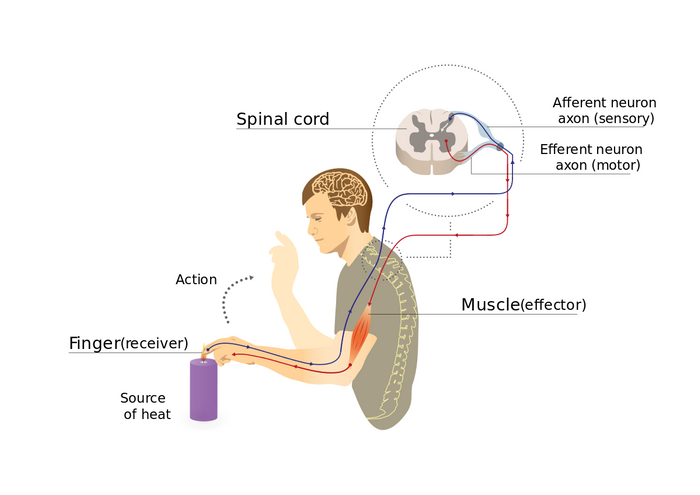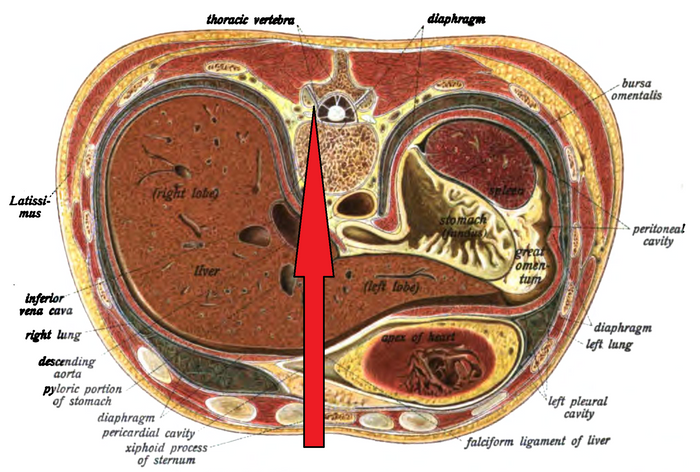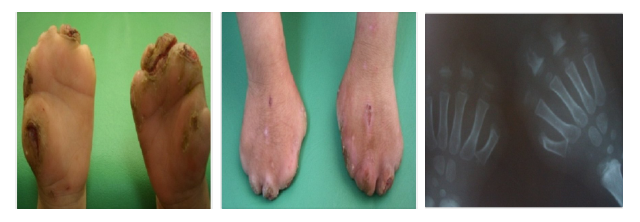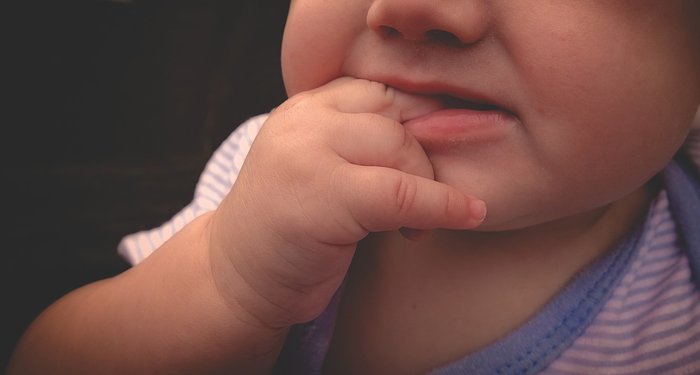ADSactly Health - Is pain needed in our life?
Even if the feeling of "pain" may be unpleasant, it is absolutely indispensable for the purpose of life itself and for a good health. It seems an absolute contradiction: to feel good you have to feel bad.

"Pain" by Nick Youngson CC BY-SA 3.0 Alpha Stock Images
The pain, as most of our biological functions, is a mechanism that has evolved and perfected over the millennia of our existence just to safeguard us from numerous dangers.
Pain 101
Although we all know the feeling of pain, only few of us know that the mechanism behind it, it's extremely complex and it's highly regulated. We can describe "pain" as an unpleasant feeling, but it's way more that this: it signal to our conscience that something "is not ok". It is not a "defect" of human being, but one of the most important alarm systems that our body has. Our body perceives pain through receptors (nociceptors) located in some tissues, the most important (and most extensive) is skin that allow us to interact with the outside world. Nociceptors are also present in the muscles, joints and some membranes (serous) that cover the organs of our body. These receptors consists in nerve cells that are highly specialized in responding to particular types of stimuli. Without going too much into detail, the nociceptors can respond to mechanical, thermal and chemical stimuli; in order to get activated and transmit signals to the brain, the stimulus must be of a certain intensity or involve different nociceptors at the same time. Once an appropriate stimulus activate these nerve cells, an electrical impulse is transmitted via the spinal cord to reach the nuclei of thalamus and from there to the brain, in an specific area dedicated to reception and processing of painful stimuli (postcentral convolution or primary somatosensory cortex). In reality, the pain circuit is much more complex than that: in the brain, there are numerous connections between the primary somatosensory area, the secondary somatosensory are and the limbic system, which is dedicated to the processing of memories and feelings. For this reason, a painful sensation can be amplified if it associated to our fear or if it's charged by a strong bad emotion; on the other hand if we are distracted by something else, we feel the pain with some delay, as we can see in the TV shows where the hero on duty realizes that he was wounded by a bullet only at the end of a firefight.
Pain: why does it even exists?
Our body is a formidable machine: resistant, agile, able to protect our internal organs and with some regenerative capacities. Why something so perfectly made, does offer us such a bad sensation as pain? Let's do a little imaginary experiment. Let's consider an extremely long nail, which goes through the center of our body very gradually. This is a bit "macabre", but that gives a good idea on how we are made and why pain is so essential to us.
First, we feel a simple pinch as soon as the nail hit our skin. We have injured the most superficial layers of our skin, not a big deal: our regenerative capacity will repair the damage in a few hours. Proceeding deeper with the nail, we begin to bleed, we feel a warm sensation and a more intense pain: we are in the subcutaneous layer, which is rich in blood vessels that bring nourishment to both the most superficial and deeper layers of our skin. The damage at this level begins to be tangible: the formation of new blood vessels can take hours and this kind of damage can trigger a severe infectious process that can compromise the whole organism. If we go deeper, the nail will then touches the muscles: the pain that was previously punctiform, begins to be wider and less defined and the bleeding becomes way more conspicuous due to the abundance of blood vessels in the muscles. The damage in this case can be repaired over a period of months, sometimes leaving permanent dysfunctions. The pain at this point, is much more intense and almost unbearable. However, as we go deeper, the pain feeling changes: when the damage is to the internal organs, the pain is felt as deep, badly localizable, intense but in some ways more bearable. Our body begins to give us other warning signs: the blood vessels contract, the blood pressure is altered, we start to sweat, to agitate and to be confused. The journey of our nail ends at the level of the spinal cord, which is made by the nerve cells responsible for the transfer of informations from the periphery of the body to the brain. At this point, the pain just disappear because we have damaged the main conduction system of painful information (and not only). Now, you have a severe damage all over your body but you feel no pain: are you starting to get the point?
I do not know if you got it by example above, but the truth is that pain serves as a defense mechanism to external harmful stimuli. When we feel the pin that touches us, the initial nuisance makes us react in a reflexive manner, leading us to move away from the source of the damage. In fact, the pain is a spy system of damage that is happening in our body: the more it is intense, the more we quickly adapt to flee from the harmful stimulus: this is why the pain is more precise on the superficial layers of our body, so we can quickly locate its source.
When not experiencing pain it is lethal: analgesic syndromes
CIPA (Congenital Insensitivity to Pain with Anhidrosis) is a very rare condition of natural analgesia (pain suppression): a pathology in which the patient is immune to pain and does not feel neither cold nor hot. The etiology of CIPA is a very rare autosomal recessive mutation of the NTRK1 gene, which codes for a protein essential for the proper functioning of sensory neurons, which just do not work in these patients. The literature on the subject is extremely poor: just about 100 publications for a disease that affects less than 500 people worldwide (mostly in Japan). What seems a very happy life without pain is actually a real nightmare: children with CIPA generally do not survive infancy and there are only few cases of those arriving in the adulthood. Death usually occurs due to hyperthermia, recurrent infections or internal bleeding. Children affected by CIPA can face severe falls, break bones or get head damage without having any symptoms until it is too late; they die from hyperthermia because they can not sweat to expel excess heat. The most devastating symptom, however, are the self-mutilations: without pain, babies just gnaw their fingers or toes to completely detach them: this is why they are often removed all the milk teeth.
There are no therapies for this disease given the extremely small number of cases to be studied (moreover, almost all cases are about children). The only possible approaches are to control all the activities of the child, preventing him from performing too dangerous activities and continuously monitor the temperature to prevent hypo and hyperthermia.
Another recently discovered analgesic syndrome is entirely Italian: the Marsili Syndrome, from the name of the affected family. Also in this case, it is a mutation of a gene, * ZFHX2 *, which regulates the transcription of genes involved in the sensory process, whose details have not yet been discovered. Experiments on mice to which the gene has been eliminated, have shown the development of an insensitivity to pain and heat, which proves that the gene plays an important role in regulating pain. The mutation is dominant: the Marsili family has six individuals affected by this disease, for three generations. Similar to CIPA, they easily develop fractures and severe bodily injuries due to trauma and injuries that do not cause them pain; however, it seems that these deficits develop after childhood and that some types of pain, such as headaches, are fully felt.
Pain as a mechanism of physical preservation ... and much more
Now it should be easy to understand why physical pain exists: it allows us to safeguard the integrity of our body and to identify and move away from an harmful stimulus. The safeguarding of our health is also protected by various "innate" mechanisms, which are beyond our "conscious" control. For example, if you accidentally touch a hot object, your hand quickly moves away; as if you hear a sudden noise, you automatically turn your head and eyes to look at the source of the noise. In both cases, I described some reflex arcs or in other words, reflex behaviors that are given by the activation of much shorter nervous circuits than the "standard" one we have seen previously.

"Withdrawal reflex": in the presence of an harmful stimulus on the hand, the arm's muscles contracts rapidly and involuntarily, moving the hand away from the source of the damage. Image of Marta Aguayo. CC BY SA 30.0
In the example in the figure, we take into consideration the withdrawal refles, in which a painful stimulus (heat source or just a nail pinch) activates pain receptors. The impulse reaches the spinal cord and from there it splits: an impulse will go to the brain to make us realize what is happening while another one will go directly to the effector muscle, the biceps, making it to contract, causing the withdrawal of the hand by the flexion of the arm.
We can therefore say with absolute certainty that pain is essential to our life and is part of it: it's a mechanism that serves to protect us from what can destroy us. Likewise, emotional pain has an even more tangible role on the growth of the individual: amorous disappointment, betrayals, dissatisfaction that we receive in life and that make us suffer, make us more attentive and stronger to deal with relationships with next one.
Do you agree?
Authored by @cryptoitaly
Click on the coin to join our Discord Chat

Witness proposal is here:
Go To Steem Witness Page
In the bottom of the page type: adsactly-witness and press vote.

Use small letters and no "@" sign. Or, click here to vote directly!
Thank you!



My comprehension of pain; we as humans are managed distinctive levels of pain to see the development as a spirit and trust the light. My belief is we need to feel the pain. You might say thats crazy, but no because my learning is that its a wave – like a clamp round your heart – so you feel the pain come into your body, feel the pain for that second and it passes. Its so important feeling pain to understand we are not just robots. A soul and feelings with a heart that has a brain and the light wants us to feel pain to grow. Its special and sounds crazy but its beautiful.. love is filled with the energy of light…. Life is a path to grow and learn !!!!
A comfort zone is a nice place.... but nothing ever grows there...
Life is about balance. The more hard work (pain) we put in, the more satisfaction and happiness we gain.
It is really about feeling appreciation for things we have, and it is natural to appreciate things more after we had to earn it (through hardship or a long time).
Wonderful information! I have Complex Regional Pain Syndrome in my right arm going to my neck, my sympathetic nerves are in over drive 24/7. A simple breeze of the wind or my own breathe can cause my nerves to react thinking it is painful. Constant fight or flight mode. Pain is important, and Neurological Pain Disorder awareness is in important too. Excellent read, thank you again for creating this
Thank you for this in depth post. Ironically, the individuals who experience pain and or suffering to extreme degrees, and yet are able to cope and move forward with their lives, are often some of the most influential and positive human beings to live. I believe pain and struggle and hardship are all ingredients necessary to become the highest functioning version of You, that's possible.
Certainly, I think pain is necessary in our lives. Experiencing it allows us to defend ourselves and protect ourselves when it comes to physical pain. Emotional pain, although necessary, can also have more complex consequences, since it is about emotions, the balance of people. For example, when a loved one physically disappears, the pain is in the feelings, mourning and depression appear in many cases. Even emotional pain can lead to physical pain. I know of people who have reflected strong emotions in spinal cord pain and have even been paralyzed by it. An extremely interesting article, @cryptoitaly.
I totally agree with you on this, pain is essential for one's growth. If we don't experience pain in our lives there will be nor room for improvement and no room to contain does who are in pains either. I've actually felt the pain of what if feels like been a loser, I had lost some quite number of times but what else, if not for does pains would I have grown to become a stronger Person now? Obviously not. Remember what doesn't kill me makes me stronger .
That was a good quote, I'v should put it in the post. Thanks for your comment!
Emotional pain – a signal of our disobedience, of our delusions. It reflects the conflict between the desired and the real, between the past and the future, between thought and deed. Inner pain may be associated with feelings of love and hate, sadness and rejection. Many writers and poets embellished pain with their fantasies and made the reader believe that suffering (that is, pain) can be purifying. They made us believe that only having experienced mental anguish, a person can know the meaning of his own life and rise to a new level of development.
But if the pain goes away? Even the example of literary characters can be traced that, pain rather, destroys them, than contributes to their development and happiness.
By and large, our answer to the question, What is life - pain, suffering or joy, pleasure and enjoyment - depends on our existence. This conceptual question becomes the philosophy of life. And it depends a lot on how we feel pain.
Mind blowing information! I salute to the writer of this remarkable article. It is said "no pain, no gain". Pain is important because it is associated with our own existence. We cannot realize our own existence if we don't feel pain. When we feel pain, we try to remove the things or get rid of the circumstances that causes pain.
However, sometimes pain becomes too painful. Some people feels excruciating pain without any reason. There are also some medical conditions in which the patients' life become hell. Also, our society gives us enormous pain and sufferings. So, excess of pain is also bad. In fact we should live in such a way that we may cause no pain and sufferings to other people.
CIPA (Congenital Insensitivity to Pain with Anhidrosis) patients are mostly in Japan. Is this connected to genetic mutation caused by nuclear bombing during world war 2.
No pain No gain!... It is often believed that in life whatever doesn't give you pain, can never bring gain to you. For me its biblical and that was when adam and eve disobeyed God and they were cursed with pain before they make something good out of it.
Pain to us as human could come as sweet pain or pain pain, either emotional pain, psychological pain, it could come in any form and trust me it leaves a mark or scare for lessons learnt or for something significant.
Pain is bad, it shouldn't have been what is associated with anyone, it takes time to heal, that is if it heals.
Wow, how complete and clear was everything you explained, @criptoitaly. As I read the nail example, I could perceive each of the sensations you described. You impressed me with the children with CIPA and their painless behavior of things. It's almost a horror story. In my environment I have known people who tolerate pain quite a lot: what can hurt someone normally, these people do not produce anything. It must be a minimum CIPA grade they possess. Similarly, I remembered reading about any lump or ball that may come out of our body that is painless, it can be more dangerous than the ones that hurt. For example, when we see painless breast inflammations, they can be more lethal than painful ones.
I feel that with this reading I have learned a lot and you have already become my favorite doctor. Thanks to you for the information and @adsactly for always bringing quality content.
Thanks a lot for the compliment, best thing to know as author is that you learned something from this writing!
Huh. To me I will say everybody needs challenges to make him more stronger and to prepared him for the things ahead so likewise pain. Everyone of us never wanted to experience pain but is something not inevitable. In one way of our life to the other, we have experience it and we may experience it more but all we just need to do is just for us to stay strong when passing through the pain and we should never let it to overcome us
Posted using Partiko Android